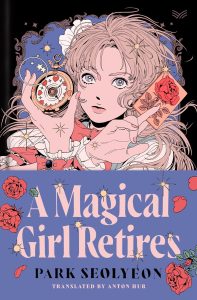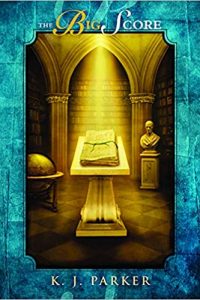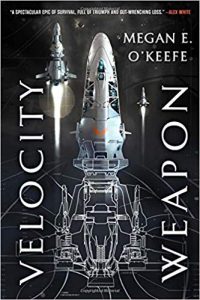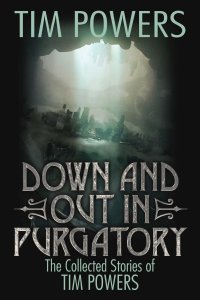Liz Bourke Reviews A Magical Girl Retires by Park Seolyeon
 A Magical Girl Retires, Park Seolyeon (HarperVia 978-0-06337-326-6, $21.99, 176pp, hc) April 2024. Cover art by Kim Sanho.
A Magical Girl Retires, Park Seolyeon (HarperVia 978-0-06337-326-6, $21.99, 176pp, hc) April 2024. Cover art by Kim Sanho.
A Magical Girl Retires is award-winning Korean writer Park Seolyeon’s first novel to be translated into English. It’s a weird, delightful little book, simultaneously grim and breezy, and the translation (by Anton Hur) communicates a fluid, straightforward and self-deprecatingly humorous first-person narration. This breezy grit is further illuminated by Kim Sanho’s interior illustrations: Each new chapter has an accompanying illustrated panel focusing on an image or event central to the chapter in question.
The protagonist – who’s never, as far as I can tell, named in the text – is twenty-nine years old, without close friends or family, and unhappily despairing. After losing her job during the pandemic, she’s run up unpayable amounts of credit card debt. Unable to see a future, she resolves to end her life and all her troubles by jumping from Seoul’s Mapo Bridge.
Her suicide is interrupted. Ah Roa, a clairvoyant magical girl, is on a mission to find the Magical Girl of Time – potentially the most powerful magical girl of all. Her powers have led her here, to the protagonist, who might turn out to be just who Ah Roa is looking for.
But being a magical girl isn’t the answer to all the protagonist’s worries. She doesn’t know how to use any powers that she might have. Her magical girl talisman turns out to be a credit card, which feels a bit pointed to her. And although the magical girls have a union, the protagonist still needs a paying job. Worse, the magical girls union hasn’t been looking for the Magical Girl of Time in order to fight off an alien invasion, or even stop a nuclear war: no, they want her to stop climate change, roll back the clock and give everyone a little more time to move to clean, sustainable energy and resources. While she’s beginning to find a close friend in Roa, and to get back on her feet with a part-time job, she feels decidedly daunted by the scale of the challenge.
And that’s before the rug is pulled out from under her feet. She’s not the Magical Girl of Time. The Magical Girl of Time is someone else entirely, a survivor of domestic violence who doesn’t believe the human race ought to go on existing. Instead of slowing down climate change, she’s decided to speed it up. And as the most powerful magical girl in the world, there’s no one to stop her.
No one except our protagonist, who finally comes into her own power when her very good friend Ah Roa’s life is in danger, along with all the other magical girls. The protagonist is not just any magical girl. She’s a magical girl who can have whatever she wants – as long as she pays the price for it.
The magical girl is a fantasy subgenre with a long history outside English-language media. It features a girl or girls who use magic, frequently by transforming into an alter ego in whom that magic is vested. I believe the most famous example in Anglophone markets remains Takeuchi Naoko’s Sailor Moon, while She-Ra is an example of a character in Anglophone media in conversation with the subgenre. In Park’s interpretation, magical girls come into their power in moments where they are otherwise extremely powerless: Each of them has a history of tragedy and/or trauma. For all the bright, brisk tone of the narration, this is a book that undercuts its magic with the cruelty of the everyday. And ultimately, climate change is too big a problem for any one person, however magical, to fix.
I’m not sure if the reader is supposed to see the relationship between Ah Roa and the protagonist as (deniably) queer or as a deep destined friendship: I don’t know much about the portrayal of friendship in Korean fiction. To this Anglophone reader, however, it reads as a very queer relationship, albeit one that dare not speak the name aloud with complete unambiguity.
I’m not widely read in translation (not nearly as much as I’d like to be), much less in Korean literature, but if Park Seolyeon is a representative example of what I’m missing out on, I’d really like to change that. A very entertaining read.
Liz Bourke is a cranky queer person who reads books. She holds a Ph.D in Classics from Trinity College, Dublin. Her first book, Sleeping With Monsters, a collection of reviews and criticism, is out now from Aqueduct Press. Find her at her blog, her Patreon, or Twitter. She supports the work of the Irish Refugee Council and the Abortion Rights Campaign.
This review and more like it in the April 2024 issue of Locus.
 While you are here, please take a moment to support Locus with a one-time or recurring donation. We rely on reader donations to keep the magazine and site going, and would like to keep the site paywall free, but WE NEED YOUR FINANCIAL SUPPORT to continue quality coverage of the science fiction and fantasy field.
While you are here, please take a moment to support Locus with a one-time or recurring donation. We rely on reader donations to keep the magazine and site going, and would like to keep the site paywall free, but WE NEED YOUR FINANCIAL SUPPORT to continue quality coverage of the science fiction and fantasy field.
©Locus Magazine. Copyrighted material may not be republished without permission of LSFF.








